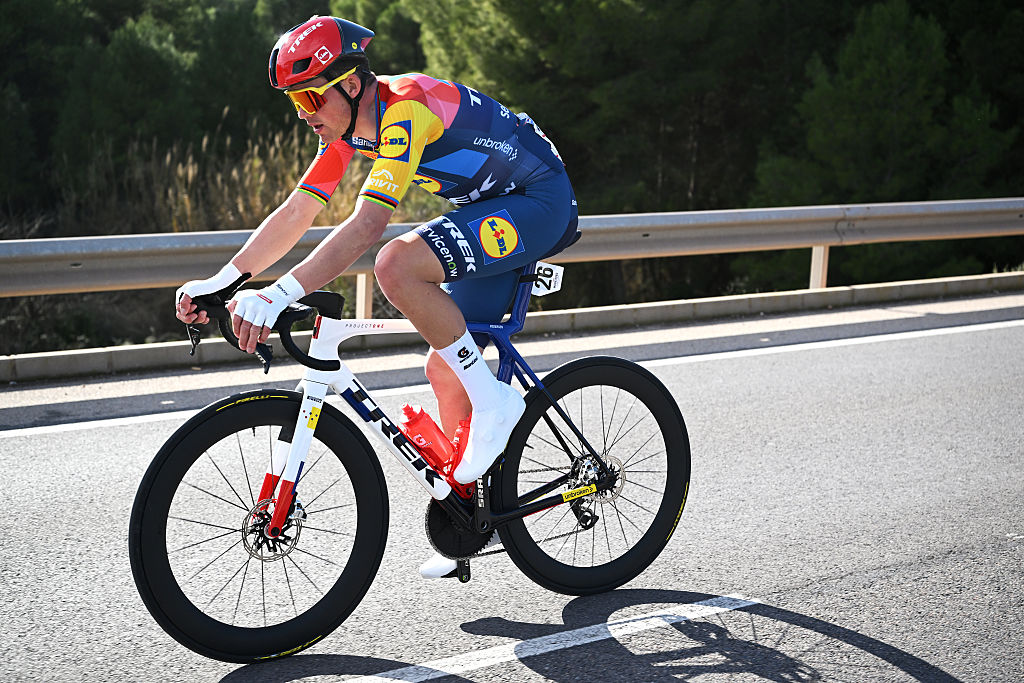Farrar: Most of Vuelta a Espana peloton at a breaking point
American says tendency toward 'epic' courses not limited to Spain
The latest race content, interviews, features, reviews and expert buying guides, direct to your inbox!
You are now subscribed
Your newsletter sign-up was successful
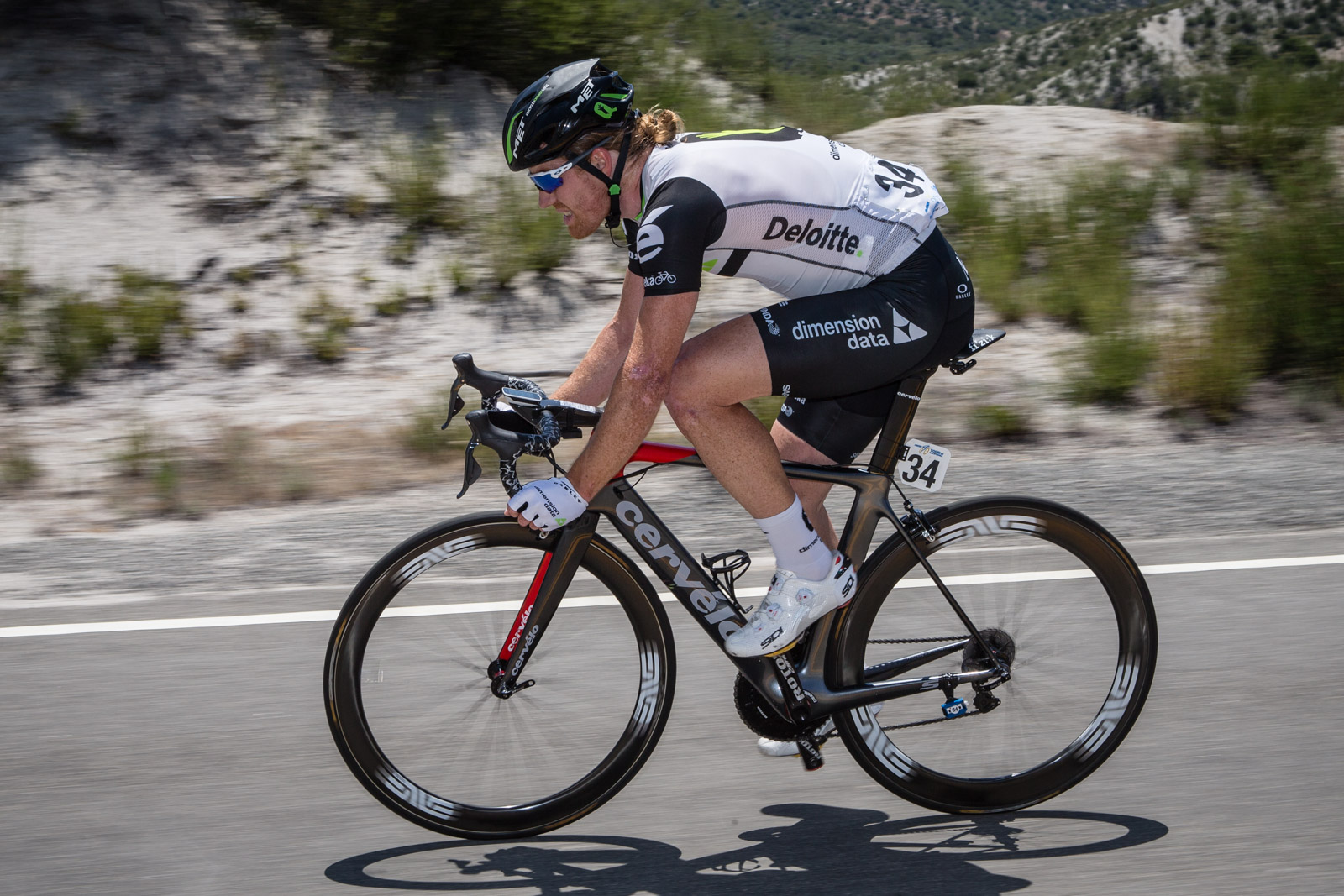
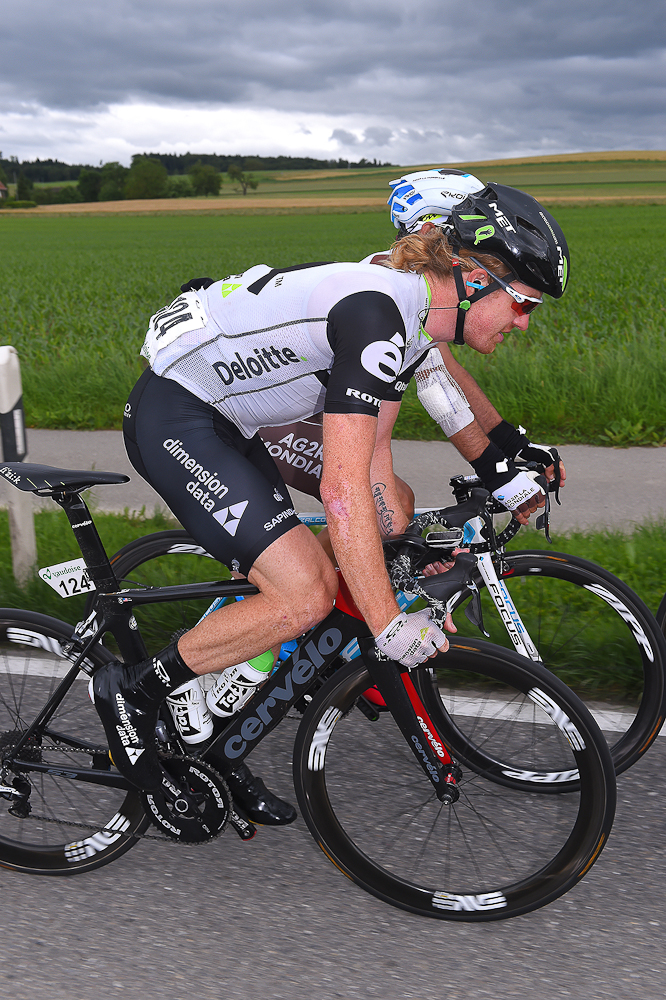
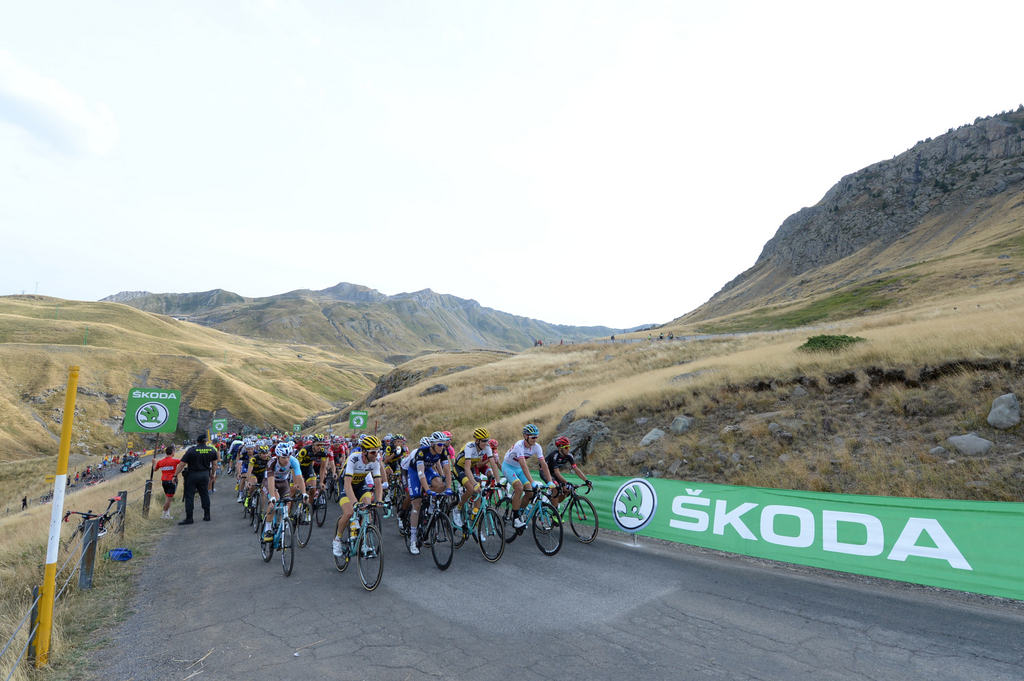
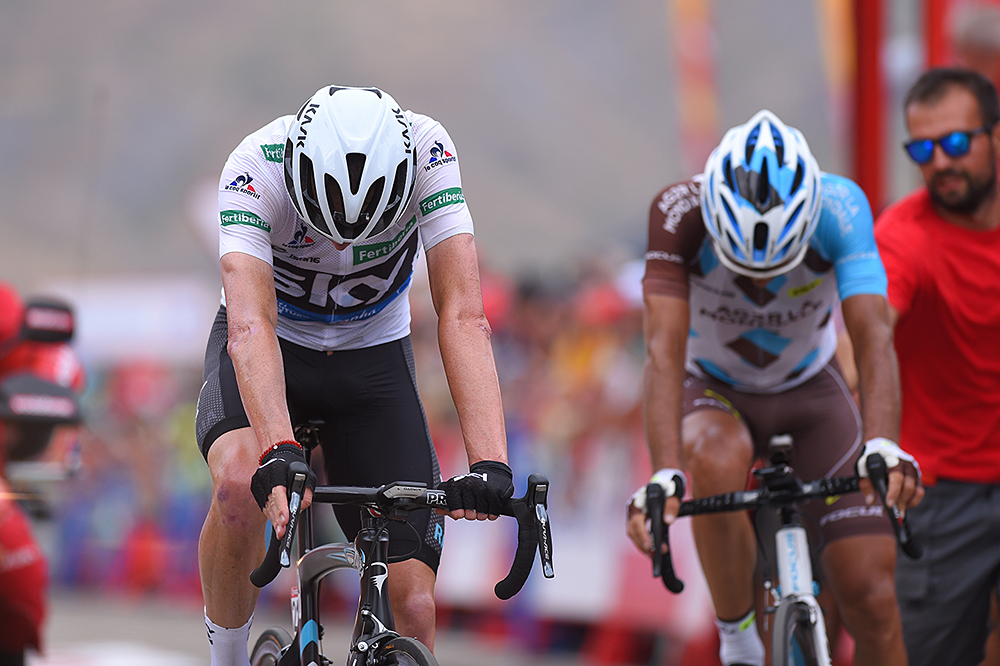
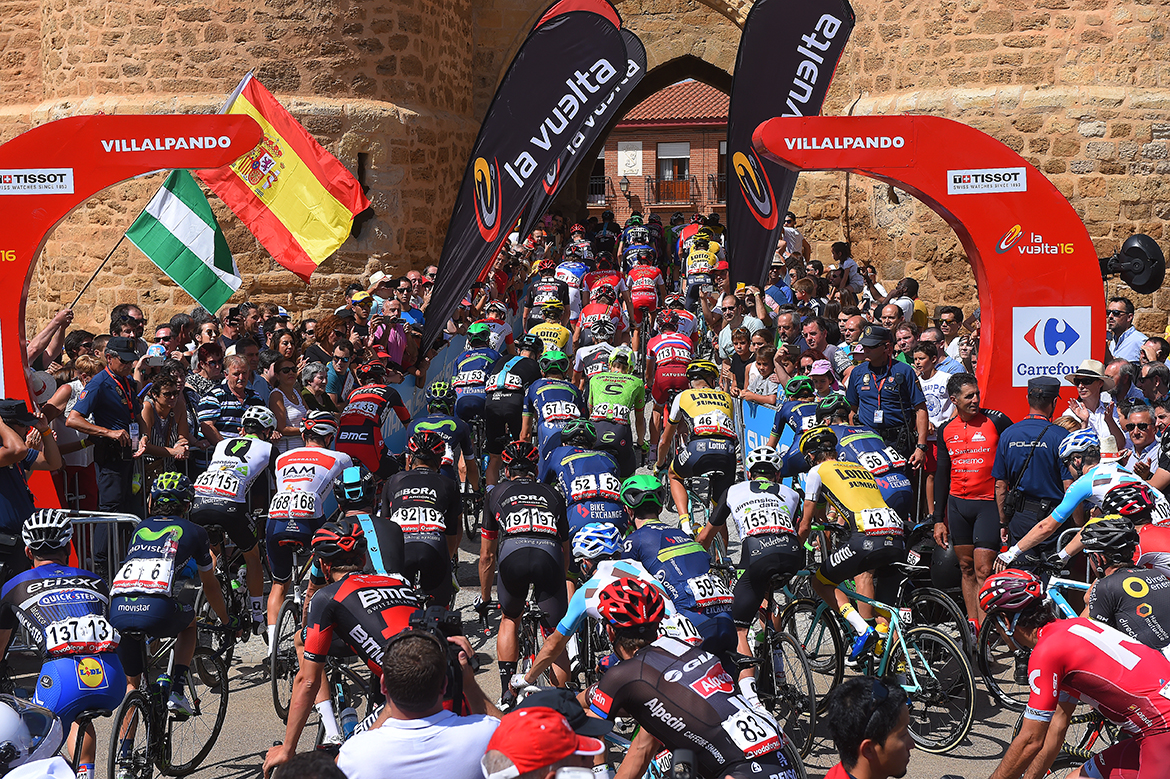
American veteran Tyler Farrar (Dimension Data) is racing his 15th Grand Tour at the Vuelta a Espana this year, and whilst in good shape physically, Farrar has no hesitation as describing the Spanish race as the toughest Grand Tour, in terms of terrain, that he's ever done.
Farrar has completed five editions of the Giro d'Italia, Tour de France and - touching wood - the Vuelta a España, and says the increased degree of difficulty is not limited to the Spanish Grand Tour, not by a long chalk. "This year, I did the hardest Tour of California ever, followed by the hardest Tour de Suisse ever, followed by the hardest ever Vuelta," he tells Cyclingnews.
"So do we want cycling to be a last man standing epic affair every day? If that's what cycling wants, then OK. Or do we want it to be more tactical, go back to a more traditional format?"
With racing this hard, Farrar says, the Vuelta peloton reached a point where they are just going through the motions. As he puts it, a significant part of the peloton "is now just riding from point A to point B."
Speaking to Cyclingnews at the start of stage 18 from Requena to Gandia, described in the route book as 'flat', but which in fact has more than 2,500 metres of vertical climbing, Farrar states categorically, "Every day has been hard, I think I've never seen a Grand Tour as hard as this year's Vuelta.
"Everyone underestimates the sheer metres of climbing every stage. 2,500 metres of climbing used to be considered a medium mountain stage, now they call it a sprint stage.
"If I look at the [Vuelta route] book, I think there have been two stages that actually qualify as a sprint stage. I did Vueltas eight years ago where there were eight true sprints out of 21 days - not 3,000 metres of climbing and by chance it ends in a sprint."
The latest race content, interviews, features, reviews and expert buying guides, direct to your inbox!
Farrar feels that the tendency for increasing toughness of races is far from being limited to the Vuelta, and has affected the style of racing.
"I think cycling has to decide what it wants from bike racing. I've watched for five or six years. Every race gets a little harder every year, they add another mountain stage, they add another climb, they add this, they add that," he argues.
"I think what you see is, there is a limit to what the peloton can do. Of course, the very best climbers can race day in day out. You see [Nairo] Quintana and [Chris] Froome (Sky) and [Alberto] Contador (Tinkoff)."
The rest of the peloton, he says, "is kind of on its breaking point."
On stage 14, where Alberto Contador (TInkoff) and Nairo Quintana (Movistar) blew the race apart in a joint attack and 93 riders finished outside the time limit, Farrar said, "We saw it in the second week, 90 guys just riding from point A to point B."
Farrar is not directly critical of this development, rather he feels it's a trend that opens up a wider debate that needs to be resolved.
"I'll be interested to see what the course looks like next year. Do they double down on it or do they kind of go, apparently that's the line now."
Other riders have attacked the Vuelta route directly for being, they claim, excessively hard. Speaking to Spanish radio station Cadena Cope, Sky rider David Löpez said, "I'm liking the race, but just look at last week when all the gruppetto when all the bunch finished outside the time limit."
Farrar himself battles on, with his own objectives in the race. "I'm here to support the team, our big goals coming here were a stage win, which we have not achieved yet, but we've had Kristian [Sbaragli - winner of stage in 2015] come close a a few times and we've still got a few chances left," he tells Cyclingnews.
"Then we're making a big push for the climber's jersey with Omar [Fraile], and that's going to be a fight right down to the wire.
"We'd hoped for a good GC with Igor [Anton], but unfortunately, he got sick in the first week, which derailed those ambitions. But personally, my goals were and are just to help in any way I can and get through."
After the Vuelta, Farrar is keen to go to the Worlds, but only if he remains physically in good shape in what is an exceptionally long season.
"I've still got a few races ahead of me, shaping up to be a busy Fall, with London and Arctic Tour and then the Vuelta and Eneco Tour." As for the World's, "it's definitely something I'm interested in. I want to see where the body's at at the end of September. It'll have been a lot of racing, so if the body's good and I'm healthy, then of course, if I'm running on fumes, there's not much you can do about."
Farrar and the US national coach have, he said, "touched base a little bit, but the World's is still quite a ways away. Usually it's two weeks after the Vuelta and now it's five, so there's still some time. Qatar, on paper, looks good, so just have to see."
Meanwhile, like much of the rest of the Vuelta peloton, Farrar's focused on helping his team out as best he can - and making it to Madrid.
Alasdair Fotheringham has been reporting on cycling since 1991. He has covered every Tour de France since 1992 bar one, as well as numerous other bike races of all shapes and sizes, ranging from the Olympic Games in 2008 to the now sadly defunct Subida a Urkiola hill climb in Spain. As well as working for Cyclingnews, he has also written for The Independent, The Guardian, ProCycling, The Express and Reuters.

